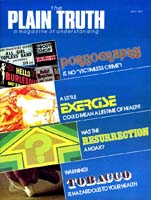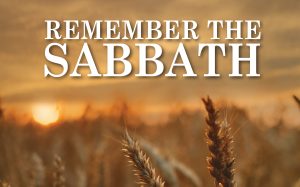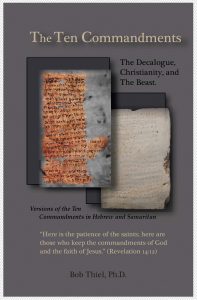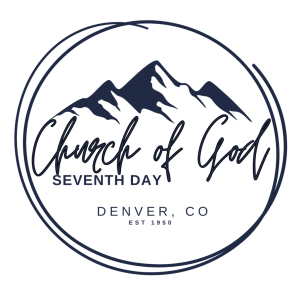‘Line in the Sand,’ the sex trafficking of minors in the USA, and ‘US Hospitals Raked In $120 Million Performing Sex Changes On Thousands Of Kids’
Friday, October 11th, 2024Yesterday, I watched parts of a James O’Keefe documentary called ‘Line in the Sand.’ Here is some information about it and what it says is happening in the USA:
The terrifying documentary “Line in the Sand,” by journalist and film director James O’Keefe, premiers on the Tucker Carlson Network today, Oct. 10, 2024. It is a chilling tale of modern-day exploitation, of human misery and abuse in the illegal-immigration system across the U.S. border where millions cross and children disappear from facilities, the federal government pays for the illicit process and cartels profit by the billions. Half a million children have been moved in three years across the U.S. border illegally, most of them currently unaccounted for, says O’Keefe in the film’s trailer. Where did they disappear to once they entered the United States? Who are the government employees and NGO and church staff that work in silence amid this massive illegal humanitarian crisis? It is a billion-dollar business with immense human cost for those who are the human merchandise. Many end up in sex slavery and prostitution.
Why is this form of human slavery, trafficking and gross abuse not stopped? O’Keefe concludes that all those involved are getting rich off the industry – the NGOs, the government, the churches, the cartels. It is child trafficking with federal government employees helping to facilitate the unaccompanied children to “sponsors” all across the U.S., he says. They are delivered to people whom they often do not know and left there reportedly without any further follow up.
O’Keefe spent a year on the film, risking his life pretending to be a Ukrainian refugee, crossing the Mexican border into the United States, all with hidden cameras documenting what he and his courageous team saw. Yet, what shocked him the most was how willing regular American employees were to hide what was going on. He asks: Are we a nation of moral cowards? How is it acceptable for so many individuals that work at these facilities to close their eyes to the human trafficking only so they can collect their pay checks? This is mass criminal behavior. 10/09/24 https://www.wnd.com/2024/10/children-for-sale-watch-okeefes-line-in-the-sand/
There are a lot of problems with the border policies of the USA.
Kids being sex trafficked is one of them.
Related to sex trafficking, earlier this year, I watched the movie Sound of Freedom.
I reported about that movie last Summer when it came out and brought out the fact that YouTube censored various comments about it (see “YouTube Is Pulling ‘Sound Of Freedom’ Interviews, Reviews”).
While the movie, for the most part, attempted to be tastefully done, I suspected that it would be gut-wrenching to watch–and it was.
One of the scriptural reasons I watched it was because the Bible teaches:
2 Better to go to the house of mourning
Than to go to the house of feasting. (Ecclesiastes 7:2)
After watching parts of Line in the Sand, it seemed timely to again denounce pedophilia. The Bible says:
1 Cry aloud, spare not;
Lift up your voice like a trumpet;
Tell My people their transgression,
And the house of Jacob their sins. (Isaiah 58:1)9 Know ye not that the unrighteous shall not inherit the kingdom of God? Be not deceived: neither fornicators, nor idolaters, nor adulterers, nor effeminate, nor abusers of themselves with mankind, (1 Corinthians 6:9, KJV)
According to the Sound of Freedom movie, pedophilia is a $150 billion per year industry and the USA is one of the biggest “consumers” of such.
While many believe coming to the USA by any means will help them, Line in the Sand brought the following to mind:
19 While they promise them liberty, they themselves are slaves of corruption … (2 Peter 2:19)
(The above verse is also applicable to religious leaders, like Andy Stanley, who promote lawlessness. See also HD: Andy Stanley Holds ‘Unconditional Conference’ Instructing Pastors To Celebrate and Affirm LGBT Congregants).
That said, many in the media do not want people to learn about how horrendous the sins of sex-trafficking are.
Getting back to the Sound of Freedom movie, it was originally made for Disney, but it shelved it. Notice also:
Actor Jim Caviezel, … revealed recently what took place behind the scenes of a Disney movie.
“They wanted me to remove ‘God’ from all the script. True story … what happened to God? ‘God will give me justice,’” he said, quoting the book.
“I had to say, no, I can’t do this,’” he said.
The response was vintage liberal Hollywood.
“Disney said, ‘Oh, so you’re one of those?’ I said, ‘One of those what? One of those who rewrite Alexandre Dumas? One of those who rewrite Shakespeare? because that’s essentially what you did,’” he said. 07/03/23 https://www.wnd.com/2023/07/jim-caviezel-reveals-disney-told-references-god-count-monte-cristo/
Consider the above with the following:
28 And even as they did not like to retain God in their knowledge, God gave them over to a debased mind, to do those things which are not fitting; 29 being filled with all unrighteousness, sexual immorality, wickedness, covetousness, maliciousness; full of envy, murder, strife, deceit, evil-mindedness; they are whisperers, 30 backbiters, haters of God, violent, proud, boasters, inventors of evil things, disobedient to parents, 31 undiscerning, untrustworthy, unloving, unforgiving, unmerciful; 32 who, knowing the righteous judgment of God, that those who practice such things are deserving of death, not only do the same but also approve of those who practice them. (Romans 1:28-32)
The sexually immoral do not want to retain God in their knowledge (though they will tend to support various false concepts about God).
Homosexuality, pornography, and sexual immorality, combined with greed, have fueled the pedophilia situation.
I pray that the victims of such trafficking will be able to cope with what they have been through so that they can move forward with their lives.
Child pornography is considered to be a factor that encourages pedophilia. And the internet is a place where this happens, despite its illegality. We have both an article (Pornography: A scourge on society) as well as a YouTube video speaking out against pornography, including child pornography (Pornography: Harmless Fun or a Scourge on Society?).
Of course, sex trafficking of children is not new. Notice something written against it decades ago published by the old Worldwide Church of God:
There is still a flourishing black market for kiddie porn. “Those who know” can readily obtain the literature and movies they desire…
Dr. Peter Decourcy declared in a report to the American Psychological Association: “Children constitute the most oppressed minority group in this country. It is a minority group whose members are regularly humiliated, beaten, mutilated, killed or sexually abused and who have little effective legal recourse or police protection.” …
The cause of the sexual exploitation of children, then, lies close to home — in fact, in the home.
Recent studies into incest indicate that the magnitude of the problem is far greater than previously imagined. An article in the April issue of Ms. magazine asserted that one girl in every four in the United States experiences some form of sexual abuse before she reaches the age of 18. Three-fourths of the abusers are known by their victims. And about one-third of the incidents of abuse take place in the victim’s home. In at least ten percent of all reported cases, the victim is a boy, but in virtually all cases, boys and girls, the victimizer is male.
Compounding the tragedy of incest is the fact that, unlike an isolated incident of rape, incest is a crime that may continue for years. Its victims are trapped not only by brute force but by loyalties and dependencies.
Even when incest is not a factor, Dr. Avedis Panajian, director of psychological services at MacLaren Hall (the juvenile hall for Los Angeles County), believes that the family of a child who is involved in pornography is usually the cause of the problem. “What is needed is treatment of the child and his family,” he believes.
“Turn the Hearts of Fathers to Their Children”
In ancient times, the prophet Malachi equated a loving family relationship with human survival itself. “Behold, I will send you Elijah the prophet before the great and terrible day of the Lord comes. And he will turn the hearts of fathers to their children and the hearts of children to their fathers, lest I come and smite the land with a curse [marginal reading: utter destruction]” (Mal. 4:5-6).
Modern civilization is most certainly under a curse today because so many parents have become alienated from their children. The curse is reflected in skyrocketing juvenile crime, the breakdown of school systems, jails filled to overflowing, and obscenities such as child pornography and teenage prostitution.
The time must come, will come, when, in the words of noted psychoanalyst Erik Erikson, “There will exist a well-informed, well-considered and yet fervent public conviction that the most deadly of all possible sins is the mutilation of a child’s spirit; for such mutilation undercuts the life principle of trust, without which every human act, may it feel ever so good, and seem ever so right, is prone to perversion by destructive forms of consciousness.” (Graunke DP. KIDDIE PORN Causes and Cures. Plain Truth, December 1977)
The problem has worsened since, even though there are now laws against child pornography. More and more children are being sold for purposes of sexual immorality. And more in various media want to allow pedophilia–or at least reduce criticisms of it.
Another thing that is worse now is the sexual mutilation of thousands in the USA. Notice the following:
US Hospitals Raked In $120 Million Performing Sex Changes On Thousands Of Kids, New Data Shows
U.S. hospitals charged nearly $120 million over five years for sex-change procedures performed on around 14,000 children, according to new data compiled by medical watchdog Do No Harm.
The first-of-its-kind database, which logs sex-change procedures given to children nationwide between 2019 and 2023, catalogs a total of 5,747 minors who underwent sex-change surgeries, along with 8,579 who obtained puberty blockers or cross sex hormones.
Do No Harm believes the problem is likely even bigger than the data shows. The numbers, which are drawn from insurance claims data across all 50 states, do not include self-pay, charity payments, internal Veterans Affairs claims or patients covered by Kaiser Health Plans. 10/09/24 https://www.msn.com/en-us/health/other/us-hospitals-raked-in-120-million-performing-sex-changes-on-thousands-of-kids-new-data-shows/ar-AA1rUd5d
Sex Change Procedures Inflicted on 14,000 Children
Everyone agrees that Josef Mengele was a villain. But his crimes are dwarfed by the scale of evil currently taking place in the USA, as revealed by Do No Harm:
From January 2019 to December 2023, 13,994 minor patients received gender-transition treatments, with 5,747 undergoing sex-change surgeries and 8,579 getting hormones and puberty blockers, according to Do No Harm’s database. A majority of the body-modification procedures were conducted on minors around the age of 15.
No child can meaningfully consent to being deformed for social engineering purposes.
The database lines up with anecdotal accounts of teenagers being rushed into surgical operations and hormone procedures that permanently alter their bodies. A number of medical patients who later came to regret these procedures, known as “detransitioners,” have publicly spoken about their experiences being pushed to undergo gender-transition operations while they struggled with mental-health issues and sought guidance.
The figures given are lower limits:
The database likely undercounts the true number of trans medical interventions because it excludes “gray area” cases and lacks data from certain health-care providers. …
Do No Harm’s figures are based on publicly available insurance claim data the organization obtained from clearinghouses, data aggregators, payers, health systems, the Centers for Medicare and Medicaid Services, and open sources.
The crimes against humanity are inflicted to advance the LGBT agenda. 10/09/24 https://moonbattery.com/sex-change-procedures-inflicted-on-14000-children/
The Bible warns of “inventors of evil things” (Romans 1:30) and those involved in these type of gender destruction are certainly pushing such evil inventions.
The Bible also warns:
10 For the love of money is a root of all kinds of evil, for which some have strayed from the faith in their greediness, and pierced themselves through with many sorrows. (1 Timothy 6:10)
Child traffickers, pornographers, and those who mutilate children have a love of money that is abhorrent.
The Apostle Paul prophesied that things would get worse in these last days:
1 But know this, that in the last days perilous times will come: 2 For men will be lovers of themselves, lovers of money, boasters, proud, blasphemers, disobedient to parents, unthankful, unholy, 3 unloving, unforgiving, slanderers, without self-control, brutal, despisers of good, 4 traitors, headstrong, haughty, lovers of pleasure rather than lovers of God, 5 having a form of godliness but denying its power. And from such people turn away! 6 For of this sort are those who creep into households and make captives of gullible women loaded down with sins, led away by various lusts, 7 always learning and never able to come to the knowledge of the truth. (2 Timothy 3:1-7)
The Bible condemns prostitution and other forms of sexual immorality, but as a society goes further and further away from biblical morality, it should not be surprised to see the rise of horrific crimes such as the sex-trafficking of children.
While Sound of Freedom and Line in the Sand highlight some of the problems, do not think that human trafficking is about to be solved.
Human trafficking is prophesied to be part of end time Mystery Babylon’s trade:
12 merchandise of gold and silver, precious stones and pearls, fine linen and purple, silk and scarlet, every kind of citron wood, every kind of object of ivory, every kind of object of most precious wood, bronze, iron, and marble;13 and cinnamon and incense, fragrant oil and frankincense, wine and oil, fine flour and wheat, cattle and sheep, horses and chariots, and bodies and souls of men. (Revelation 18:12-13)
Notice some other scriptures:
4 We pay for the water we drink, And our wood comes at a price. 5 They pursue at our heels; We labor and have no rest. 6 We have given our hand to the Egyptians And the Assyrians, to be satisfied with bread. 7 Our fathers sinned and are no more, But we bear their iniquities. 8 Servants rule over us; There is none to deliver us from their hand”. (Lamentations 5:4-8)
18 They tracked our steps
So that we could not walk in our streets.
Our end was near;
Our days were over,
For our end had come.19 Our pursuers were swifter
Than the eagles of the heavens.
They pursued us on the mountains
And lay in wait for us in the wilderness. (Lamentations 4:18-19)8 Israel is swallowed up; Now they are among the Gentiles
Like a vessel in which is no pleasure. 9 For they have gone up to Assyria (Hosea 8:8-9)3 They shall not dwell in the Lord’s land, But Ephraim shall return to Egypt, And shall eat unclean things in Assyria…17 My God will cast them away, Because they did not obey Him; And they shall be wanderers among the nations. (Hosea 9:3,17)
(More details are also in the article Will the Anglo-Saxon Nations be Divided and Have People Taken as Slaves?)
Notice that some of the above scriptures mention Assyria (including eating unclean things there), which is who God will use to punish certain descendants of Israel, such as the USA, UK etc. (cf. Isaiah 10:5-7). Assyria is a biblical reference to the end time German-dominated Beast power (see also Germany in Biblical and Catholic Prophecy).
The late Herbert W. Armstrong wrote:
The GREAT TRIBULATION, we shall fully then realize, is the time of “Jacob’s Trouble,” spoken of in Jeremiah 30:7. And Jacob’s name was named on Joseph’s sons, Ephraim and Manasseh (Gen. 48:16). At that time a third of the people in our nations will die, or shall have died, by famine and disease epidemics; another third will dies of the war–our cities being destroyed (Ezek. 6:6), and the remaining third will be carried to the land of our enemies as slaves (Ezek. 5:12). Armstrong, Herbert W. The Time We Are In, Now. Pastor General’s Report-Vol 1, No. 15, November 20, 1979, Page 2).
Jacob’s trouble is punishment inflicted on the descendants of Israel. And this includes Ephraim and Manasseh (cf. Genesis 48), which means the United Kingdom and the United States in the 21st century (see also Anglo – America in Prophecy & the Lost Tribes of Israel).
Sadly, prophecy is clear that there will be more human trafficking until Jesus returns.
We all should follow Jesus’ admonition to pray for the Kingdom of God to come.
Some items of possibly related interest may include:
Pornography: A scourge on society Is pornography harmless fun? Does the Bible teach anything about it? What are the views of some involved with it? A related sermons is titled: Pornography, False Comfort, and False Religion. Here a shorter YouTube video Pornography: Harmless Fun or a Scourge on Society?.
Cross-dressing and other assaults against your children. What should you do? Is there an agenda to turn your children and/or grandchildren away from biblical morality and towards practices promoted by homosexuals? What does the Bible teach about cross-dressing? What should parents do? If there is an agenda, what has been going on? There are also three YouTube videos related to this, titled Transgender ‘Woe to those who call evil good’ and Cross dressing and Other Assaults Against Your Children and USA pushing gender confusion.
The Bible Condemns Homosexuality “Same-sex marriage” for “gays” and lesbians is becoming more acceptable to many. What does the Bible teach about homosexuality and the LGBTQ agenda? Can homosexuals change? A related video sermon is titled: What Does the Bible Really Teach about Homosexuality?
Making Your Marriage Work Marriage is not also easy, but it pictures a divine relationship. How can you make your marriage work? Here is a link to the video sermon: You Can Make YOUR Marriage Work.
Love, Marriage, and Sex It is important to get them in the right order.
God Created Marriage Some falsely claim that God did not create marriage and that fornication is fine. What does the Bible really teach? Here is a version in Mandarin Chinese 神创造婚姻.
The Gospel of the Kingdom of God This free online pdf booklet has answers many questions people have about the Gospel of the Kingdom of God and explains why it is the solution to the issues the world is facing. Here are links to three related sermons: The World’s False Gospel, The Gospel of the Kingdom: From the New and Old Testaments, and The Kingdom of God is the Solution.
The Ten Commandments Reflect Love, Breaking them is Evil Some feel that the ten commandments are a burden. Is that what Jesus, Paul, Peter, James, and John taught? For a more detailed discussion of the first four commandments, please see the video The Ten Commandments: Loving God. Here is a link to a related article in Mandarin Chinese 十条诫命显示爱,违反诫命的就是邪恶的
The Ten Commandments: The Decalogue, Christianity, and the Beast This is a free pdf book explaining the what the Ten Commandments are, where they came from, how early professors of Christ viewed them, and how various ones, including the Beast of Revelation, will oppose them. A related sermon is titled: The Ten Commandments and the Beast of Revelation.
Lost Tribes and Prophecies: What will happen to Australia, the British Isles, Canada, Europe, New Zealand and the United States of America? Where did those people come from? Can you totally rely on DNA? Do you really know what will happen to Europe and the English-speaking peoples? What about the peoples of Africa, Asia, South America, and the islands? This free online book provides scriptural, scientific, historical references, and commentary to address those matters. Here are links to related sermons: Lost tribes, the Bible, and DNA; Lost tribes, prophecies, and identifications; 11 Tribes, 144,000, and Multitudes; Israel, Jeremiah, Tea Tephi, and British Royalty; Gentile European Beast; Royal Succession, Samaria, and Prophecies; Asia, Islands, Latin America, Africa, and Armageddon; When Will the End of the Age Come?; Rise of the Prophesied King of the North; Christian Persecution from the Beast; WWIII and the Coming New World Order; and Woes, WWIV, and the Good News of the Kingdom of God.























